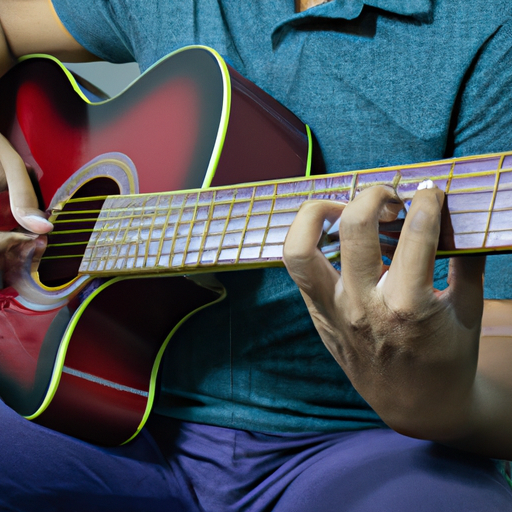
Guitar scales and improvisation techniques are essential skills for any aspiring guitarist. They allow you to express your creativity and add your personal touch to your playing. In this article, we will explore the importance of understanding guitar scales for improvisation, the different types of scales, and how to practice them effectively.

Understanding guitar scales is crucial for improvisation because they provide a roadmap for creating melodies and solos. By learning scales, you gain a better understanding of the fretboard and the relationship between notes, which allows you to navigate through different musical contexts.

Moreover, scales help you develop your ear and improve your ability to play in key. When you know the scales well, you can effortlessly create musical phrases that fit the chords and progressions you are playing over.
There are various types of guitar scales, each with its own unique characteristics. Some of the most common scales include the major scale, minor scale, pentatonic scale, and blues scale.
The major scale is the foundation for many other scales. It has a bright and happy sound and is widely used in pop, rock, and country music. The minor scale, on the other hand, has a more melancholic and emotional feel, making it ideal for blues, jazz, and metal.
The pentatonic scale is a versatile scale used in many different genres. It has a simple yet effective structure and is easy to learn. The blues scale is a variation of the pentatonic scale with added "blue notes" that add a distinctive bluesy sound.
Practicing guitar scales is essential for developing your improvisation skills. Here are some tips to help you make the most out of your practice sessions:
There are several improvisation techniques that you can apply to scales to create interesting and engaging solos. Some of these techniques include bending, vibrato, slides, hammer-ons, and pull-offs.
For example, bending a note in a scale can add a touch of expressiveness and emotion to your playing. Vibrato can make your notes sound more alive and give them a vocal-like quality. Slides, hammer-ons, and pull-offs can be used to create smooth legato lines or add articulation to your solos.
Chord progressions play a vital role in improvisation. To create melodic solos, it's important to understand how chords and scales relate to each other.
Each chord in a progression has a corresponding scale that can be used to improvise over it. For example, if the chord progression is in the key of C major, you can use the C major scale to create your solos. Understanding the relationship between chords and scales allows you to target the most important notes in each chord, creating a strong musical connection.
Creating melodies and solos using scales requires a combination of technical skills and creativity. Here are some tips to help you develop your own unique style:
One of the exciting aspects of improvisation is the ability to incorporate different styles of music into your playing. Whether you're into jazz, blues, rock, or funk, you can take elements from each genre and create your own unique sound.
For example, if you want to incorporate jazz into your improvisation, you can learn jazz scales such as the Dorian, Mixolydian, and Lydian scales. If you want to add a bluesy flavor to your playing, you can incorporate the blues scale and focus on bending and vibrato techniques.
Using backing tracks is a great way to practice improvisation with scales. Backing tracks provide a musical context for your improvisation, allowing you to play along with a band or virtual instruments.
By practicing with backing tracks, you can improve your timing, learn how to interact with other musicians, and develop your improvisational skills in a realistic setting. Additionally, backing tracks can help you to experiment with different scales and styles of music, enabling you to broaden your musical horizons.
Mastering guitar scales and improvisation techniques takes time, dedication, and practice. It's important to start with the basics, such as the major and minor scales, and gradually expand your knowledge and repertoire.
Remember to have fun and be creative. Improvisation is a form of musical self-expression, so don't be afraid to explore new ideas and take risks. With consistent practice and a passion for music, you can become a skilled improviser and add your unique voice to the guitar.
For more information on understanding guitar scales and improvisation techniques, please visit Understanding Guitar Scales and Improvisation Techniques.